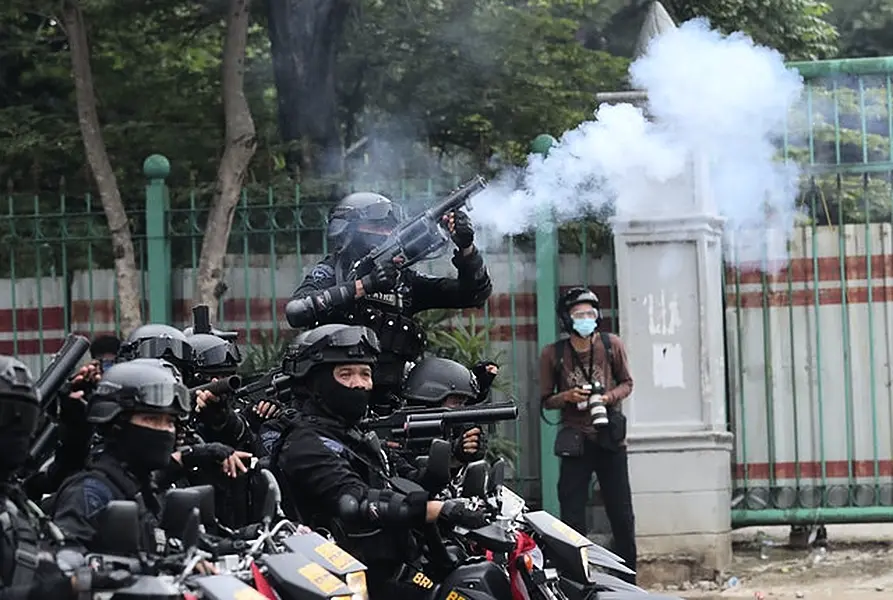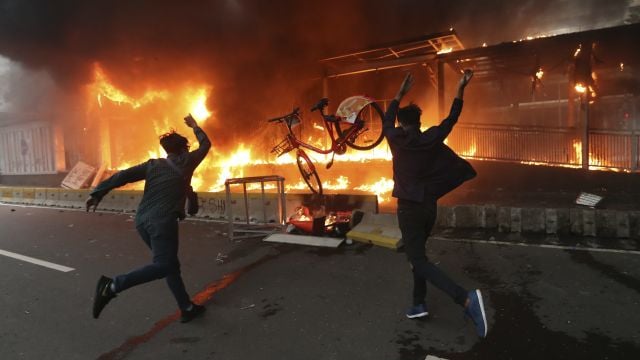Authorities blocked streets leading to the Presidential Palace in Jakarta, where clashes between riot police and rock-throwing demonstrators, including workers and students, broke out last Thursday.
The protests spread and turned violent in some cities across the world’s most populous Muslim nation, but calm had largely returned to Jakarta over the past four days.

On Tuesday, the normally clogged streets of Jakarta were nearly empty of cars, embassies were closed and many businesses were shuttered for the day after several Muslim groups announced they would stage protests.
Waving black flags bearing the Islamic declaration of faith, several thousand demonstrators, many wearing white Islamic robes, filled a major thoroughfare.
The Job Creation Law approved by Indonesia’s parliament last week is expected to substantially change Indonesia’s labour system and natural resources management. It amended 79 previous laws and is intended to improve bureaucratic efficiency as part of efforts by President Joko Widodo’s administration to attract more investment to the country.

The demonstrators say the law will hurt workers by reducing severance pay, removing restrictions on manual labour by foreign workers, increasing the use of outsourcing, and converting monthly salaries to hourly wages.
Protest organiser Shobri Lubis told the crowd, including members of the Islamic Defenders Front vigilante group, that they support workers and students in fighting for the rejection of the law.
“It’s undeniable that the Job Creation Law is more intended for foreign economic domination in Indonesia and not to side with local workers,” he said.
Protesters chanted “God is Great” and “We stand with workers” near the blocked roads.

Clashes broke out in the afternoon when riot police used tear gas to try to disperse protesters who were attempting to reach roads leading to the heavily guarded palace compound and the Chinatown area. Protesters hurled rocks, bricks and bottles.
Tuesday’s protest was organised by a conservative Muslim alliance that held mass protests in 2016 against Jakarta’s ethnic Chinese Christian governor, Basuki Tjahaja Purnama, that led to him being imprisoned for blasphemy.
Mr Widodo said on Friday that the new law was meant to improve workers’ welfare. He said the widespread protests resulted from disinformation about the legislation. He urged those who were dissatisfied with the law to challenge it in the Constitutional Court and avoid violent protests.







